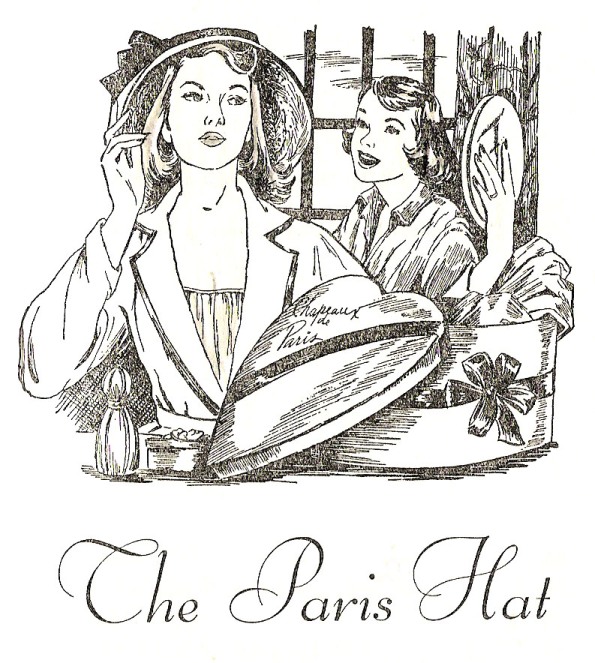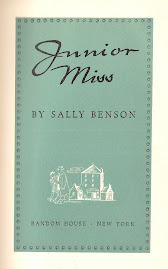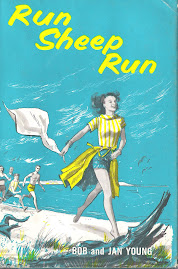 Title: The World of Ellen March
Title: The World of Ellen MarchAuthor: Jeannette Eyerly
Jacket: Charles Geer
Publisher: Lippincott, 1964
Setting: The Upper East Side; Cedar City, USA
Provenance: Formerly the property of Bridgeport Public SchoolsJacket: Charles Geer
Publisher: Lippincott, 1964
Setting: The Upper East Side; Cedar City, USA
Fun: Dover sole at the Plaza; hoodlum Johnny Ajax; how to make a fake i.d.
Quote: "I thought I could explain why your mother and I are doing what we are, but I...I find I can't. Right now, I don't think our reasons would be, well -- your reasons. Sometime, after the divorce is final and you come to visit it will be easier for you to understand."
Like most parents in divorce-themed teen novels (the early ones, anyway), Ellen March's parents announce the impending event without using phrases like "no-good bum" or "gold-digging floozy." Everything will work out fine. We still love you, we're just not going to live together, etc. Ellen's parents then get the best of all possible divorces -- the Sophisticated New York City kind. (Ellen even lunches at the Plaza with her father after the Big Talk.) Their exact reasons remain maddeningly vague. But if The World of Ellen March is not quite upfront about the messy details of divorce, it's very good with the emotional after-effects.
Ellen's mother, to "establish residency," moves them to a small Midwestern city where Ellen is afraid to confess to the other girls in school the reason her father won't be at the annual Dad's Dinner. These chapters are more realistic than the main plot, in which Ellen decides to kidnap her little sister and disappear, hoping this will bring her parents together. This, of course, goes awry in a way that involves a runaway juvenile delinquent and a car accident, only for it all to end happily, with Ellen waking up safe in the hospital to see her father standing over her bed.
Or...not so happily. The last chapter of the book is almost like the beginning of another book entirely. Ellen's parents are not getting back together -- in fact, her father is furious and her parting with him presages years of therapy. Everyone at school knows what she has done. She's left alone in the hospital with only the remote sympathy of a military nurse -- and the friendship of one Alex Quiner, who offers to update her in the requirements of how to get along with divorced parents:
"There's more -- if you'd like to sign up for the course: 'How Not to Act When Your Mother Remarries,' 'How to Be Unpopular with Everybody,' 'What to Call Your Stepfather Besides "Hey," ' just to mention a few."
Quote: "I thought I could explain why your mother and I are doing what we are, but I...I find I can't. Right now, I don't think our reasons would be, well -- your reasons. Sometime, after the divorce is final and you come to visit it will be easier for you to understand."
Like most parents in divorce-themed teen novels (the early ones, anyway), Ellen March's parents announce the impending event without using phrases like "no-good bum" or "gold-digging floozy." Everything will work out fine. We still love you, we're just not going to live together, etc. Ellen's parents then get the best of all possible divorces -- the Sophisticated New York City kind. (Ellen even lunches at the Plaza with her father after the Big Talk.) Their exact reasons remain maddeningly vague. But if The World of Ellen March is not quite upfront about the messy details of divorce, it's very good with the emotional after-effects.
Ellen's mother, to "establish residency," moves them to a small Midwestern city where Ellen is afraid to confess to the other girls in school the reason her father won't be at the annual Dad's Dinner. These chapters are more realistic than the main plot, in which Ellen decides to kidnap her little sister and disappear, hoping this will bring her parents together. This, of course, goes awry in a way that involves a runaway juvenile delinquent and a car accident, only for it all to end happily, with Ellen waking up safe in the hospital to see her father standing over her bed.
Or...not so happily. The last chapter of the book is almost like the beginning of another book entirely. Ellen's parents are not getting back together -- in fact, her father is furious and her parting with him presages years of therapy. Everyone at school knows what she has done. She's left alone in the hospital with only the remote sympathy of a military nurse -- and the friendship of one Alex Quiner, who offers to update her in the requirements of how to get along with divorced parents:
"There's more -- if you'd like to sign up for the course: 'How Not to Act When Your Mother Remarries,' 'How to Be Unpopular with Everybody,' 'What to Call Your Stepfather Besides "Hey," ' just to mention a few."
Both the military nurse and Alex are remarkable hints at a different world -- a kind of outcast community, which has seen beyond Dad's Dinners and getting married right after high school. It is clear this is going to be Ellen's world, too. And it's clear it's not such a frightening world, after all.











Loved this post, and especially the illustrations.
ReplyDelete